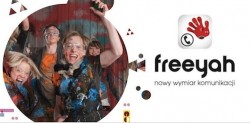Aim for the meaty middle
Operators that deploy an "open" service layer to enable swifter internal and third party innovation stand a better chance of reacting to OTT competition than those that rely on IN platforms from the major NEPs, OpenCloud has told Mobile Europe.
OpenCloud finds itself in the position of providing its Rhino service delivery platform to all three of Poland's major operators, Orange, Polkomtel and T-Mobile, as well as to CenterTel. It claims that this, allied to Poland's hi-tech academic environment and developer community, has lead to Poland leading the way in telco innovation, with service providers launching a host of functions that add value to the communications experience.
OpenCloud describes its Rhino as an open platform that sits in the the service layer, and allows third parties or operators themselves to innovate in their network. It says that stands in contrast to proprietary IN platforms provided by the major NEPs, that tie operators to long service lead times and a limited scope of innovation. It also contrasts with the open-API model of fostering third party device-based application innovation.
OpenCloud's deployments in Poland have been slightly mis-represented this week, perhaps due to OpenCloud's own choice of headline: "Polkomtel, Orange and T-Mobile at the Forefront of OTT Fight-back". Some took that to mean that there was an alliance of operators offering open APIs to developers so that they could, in turn, develop a range of cross-operator apps designed to compete with the OTT providers.
Another interpretation was that the operators have opened up their core networks to these parties. In fact, what has actually happened is less sensational. The operators are using Rhino so that trusted third parties from Poland's tech and academic sector, as well as internal teams, can create network-based services that create extra revenues or increase brand loyalty.
Mark Windle, VP of Marketing, said, "We're not talking about opening the switching layer or the telecoms core in that sense. We're talking about innovation within the competence centre of the operators. That's really the message. And we've not said operators should take the OTT players on, [despite OpenCloud's own headline – see above], we're saying, 'here's an interesting thing where operators are getting on and doing something in service innovation."
Windle said that operators need to go beyond the model of aping the app development environments of Apple and Google.
"It irritates me how much the GSMA fete Angry Birds at their major shows. Yes, it's a great game but is it generating revenues for the service providers? Not really. Operators want services not apps, they want innovation in the network itself and to do things that are fundamentally related to telecom, trading on the fundamentals that have earnt operators their revenues," Windle said.
"There's been over-excitement about the success of the app store and developer model. Operators thought that they could expose APIs, say to integrate messaging APIs with a handset app. But that's all long tail stuff that is not generating revenue. They need to do something lower down the stack that enables developers with more understanding of telecoms to do innovation in the heart of the network: in the meaty middle where the money is. That requires a deeper level of connection into the network, working with trusted third parties but with third party developers nonetheless."
"The idea that some completely anonymous guy in his shed will come up with the next killer app is, I think, misguided," Windle continued. "I would say don't write it off, but API exposure is just one piece of the fabric of the network. The place to begin is to go open and work with third party developers, rather than being reliant on the three to four vendors that typically supply IN platforms. That's the first place to start."
Poland's telco innovation
Using the collaborative approach, T-Mobile has launched an SS7 location-based short number service designed for local businesses (such as a taxi services), the implementation of a hosted PBX for mobile handsets, and Freeyah, a ‘Skype style’ VoIP service; targeted at younger consumers and downloadable on Google Play.
CenterNet deployed a pre-pay voice, international roaming, black/whitelisting and mobile number portability solution into the market with great success.
Polkomtel has created more than 25 services. These include Office Zone, Home Zone, VPN, Freephone, Split Charge, Premium Rate, Who Called/Notify ME, Voicemail in Roaming optimisation.
For more on Polish telco innovation, download OpenCloud's case study.



